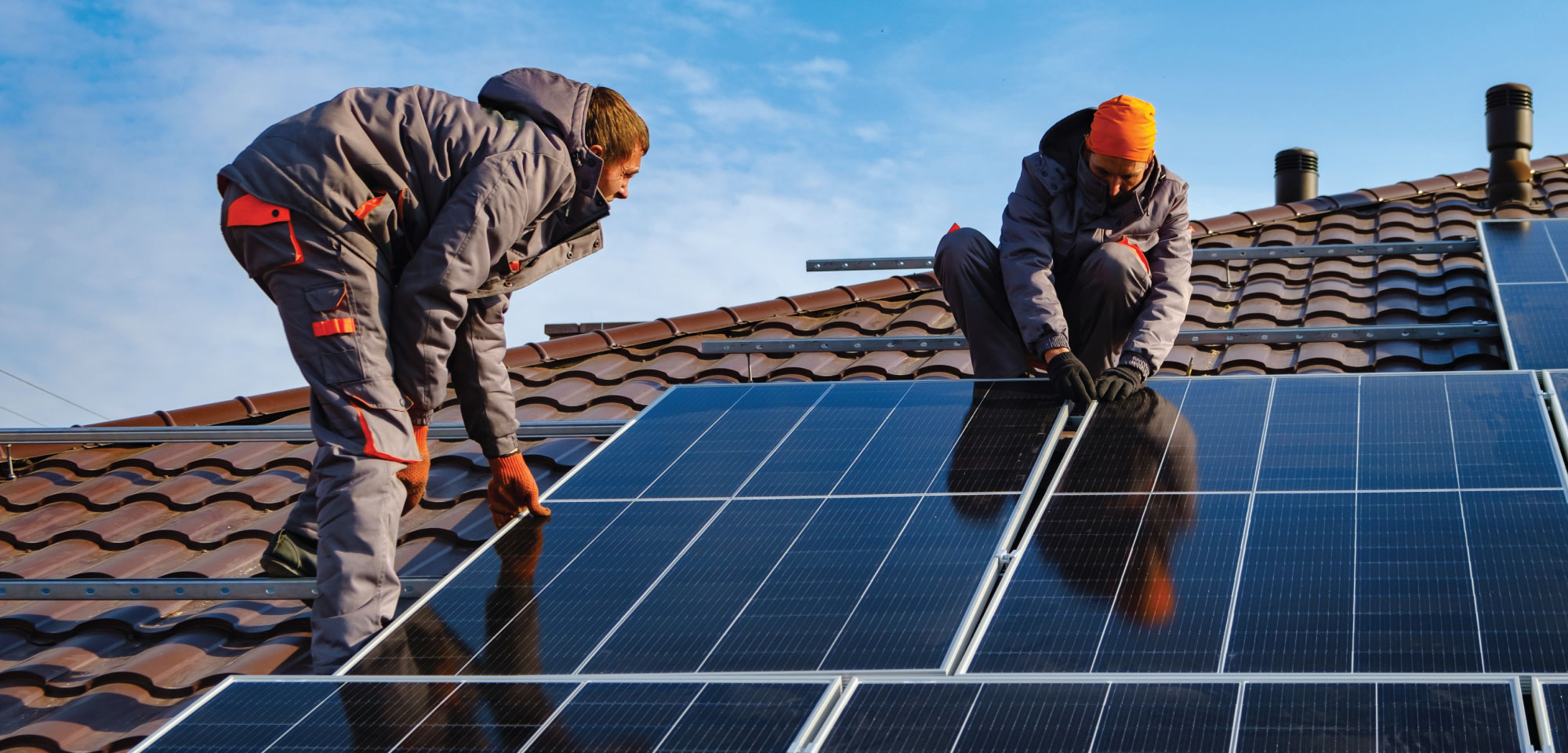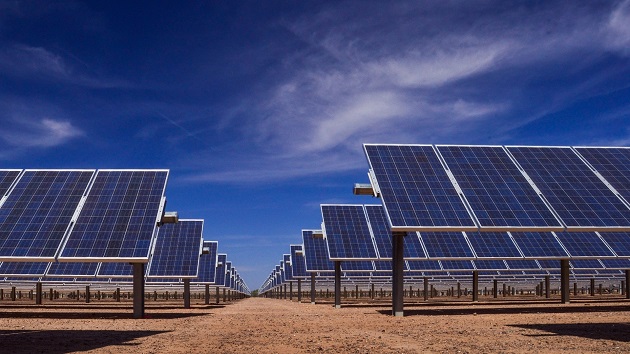Some Known Details About Best Solar Panel Company Virginia
Some Known Details About Best Solar Panel Company Virginia
Blog Article
Solar System Contractor Virginia: Lumina Solar Specializes In Providing Advanced Photovoltaic Solutions For Homes And Services
History and Establishing
Have you ever questioned how a photovoltaic panel company springs from a mere stimulate of motivation into a powerhouse of sustainable energy? It frequently begins with a vision-- one fueled by a blend of innovation, decision, and a pinch of serendipity. The journey of many solar companies mirrors the evolution of the technology itself: from large, ineffective panels to smooth, high-efficiency marvels harnessing the sun's bounty.
The Early Days
In the late 20th century, when solar energy was still a specific niche idea, pioneers planted seeds for what would become a global movement. Picture a small workshop filled with curious engineers, tirelessly experimenting with photovoltaic cells. Their passion was palpable, typically driven by a desire to fight climate change and minimize reliance on fossil fuels.
One such anecdote is about a creator who, inspired by a camping journey, understood that even in remote locations, the sun might power important gadgets. This simple observation stimulated a company's mission to equalize access to tidy energy.
Founding Concepts

- Development: Continuously pressing the borders of solar technology to improve effectiveness and toughness.
- Sustainability: Committing to environment-friendly manufacturing and decreasing carbon footprints.
- Accessibility: Making eco-friendly energy services cost effective and practical for everyday users.
Milestones in Growth
| Year | Key Occasion |
|---|---|
| 1985 | Company established in a small garage, focusing on research and advancement. |
| 1995 | Business solar panel product launched, acquiring local attention. |
| 2005 | Expanded to international markets, embracing global renewable energy objectives. |
| 2015 | Introduced advanced photovoltaic panel technology with enhanced energy conversion. |
Isn't it fascinating how these incremental actions, frequently ignored, form the energy landscape today? The solar panel company story is not practically innovation; it's about an unrelenting quest for a brighter, cleaner future.

Developments in Photovoltaic Panel Technologies
Ever observed how some solar panels gleam brighter and last longer? It's not magic; it's the science of photovoltaic effectiveness. Modern solar panel business invest greatly in technologies like bifacial cells, which record sunshine from both sides, boosting energy harvest without expanding roofing system space. Have you ever wondered why some panels perform better on cloudy days? That is because of advances in thin-film solar technology, which grows under diffused light conditions.
Item Variations Tailored to Distinct Requirements
One size never ever fits all. Solar panel suppliers now offer:
- Monocrystalline panels for maximum efficiency and streamlined looks, perfect for space-constrained rooftops.
- Polycrystalline panels, which use an economical alternative without sacrificing excessive output.
- Building-integrated photovoltaics (BIPV), combining solar tech effortlessly into architectural aspects like windows and facades.
Picking the right item isn't almost in advance cost; it has to do with matching your environment, energy objectives, and long-term cost savings. For instance, homes shaded by trees require panels that excel in low-light scenarios, something lots of ignore up until energy costs climb suddenly.
Technical Tips for Ideal Selection
- Assess the temperature level coefficient-- lower worths imply panels lose less effectiveness on hot days.
- Search for panels with enhanced anti-reflective coatings to optimize light absorption.
- Consider the panel's guarantee not just for problems, but for guaranteed power output over years.
- Don't underestimate the value of the inverter technology coupled with the panels; it can make or break your system's efficiency.
Beyond Panels: Emerging Trends
Imagine photovoltaic panels that change their angle immediately to chase the sun-- tracking systems are becoming more accessible, increasing yield substantially. Or solar tiles that mix invisibly into your roofline, changing your home into a quiet, self-dependent power generator. These innovations are improving what a solar panel business offers-- not just items, but integrated energy solutions.
Market Presence and Global Operations
Ever wonder why some photovoltaic panel companies appear to sprout up in every corner of the world while others barely make a ripple? The distinction lies not just in technology however in mastering the art of browsing varied markets. Broadening globally resembles planting seeds in different climates-- you should understand each environment's unique conditions to flourish.
Take, for circumstances, the elaborate dance of logistics and supply chain management. Delivering panels halfway across the world isn't simply about distance; it has to do with timing, custom-mades, tariffs, and adapting to regional need variations. A company with robust worldwide operations expects these variables, making sure panels get here on schedule without inflating expenses. This foresight is no little task and often separates market leaders from fans.
Key Techniques for Expanding Market Presence
- Localized production: Establishing production centers near target markets decreases shipping hold-ups and import intricacies.
- Strategic collaborations: Working together with local firms speeds up market penetration and develops trust.
- Adaptive product style: Customizing photovoltaic panel tech to weather, sun intensity, and facilities nuances improves efficiency and acceptance.
What about the human factor? Photovoltaic panel business running worldwide should fix up cultural distinctions and regulative subtleties without forgeting their core mission. What works in a sun-drenched desert may fail in a damp coastal area. In some cases, the most innovative service is simply listening-- taking in local insights to fine-tune technology and technique.
Specialists often recommend a phased rollout instead of a shotgun growth. Why risk overextension when determined growth builds sustainable momentum? Scaling carefully means balancing ambition with operational durability - Residential Solar Panels Virginia. After all, in the race for sustainable energy supremacy, patience can be as valuable as speed
Ecological Impact and Sustainability Practices
When photovoltaic panels initially emerged, numerous assumed they carried zero environmental baggage. The truth is more nuanced. The production of solar batteries involves unusual earth metals and energy-intensive processes, which can leave a substantial carbon footprint before the panels even reach roofs. The true ecological cost depends heavily on the sustainability practices utilized by the solar panel business throughout the lifecycle of their products.
How frequently do we stop briefly to consider what takes place to solar panels at the end of their useful life? Unlike batteries or electronic devices, photovoltaic panels can last 25-30 years, however disposal and recycling pathways check here remain underdeveloped in numerous areas. A company committed to decreasing environmental harm will have a robust prepare for recycling photovoltaic products, restoring valuable silicon, glass, and metals to avoid garbage dump accumulation.
Key Sustainability Techniques
- Utilizing low-impact production methods that lessen water and energy usage.
- Carrying out closed-loop systems to recycle production waste back into new panels.
- Engaging in transparent supply chain audits to ensure ethical sourcing of raw products.
- Designing panels for much easier disassembly to assist future recycling efforts.
It deserves keeping in mind that some solar companies have actually originated innovative techniques, such as incorporating naturally degradable elements or utilizing less harmful chemicals during fabrication. This not only decreases environmental stress but likewise sets a precedent for the industry. The question stays: can the solar market genuinely pivot towards a circular economy model without compromising performance or price?
Professional Tips for Examining Sustainability
- Ask about the company's commitment to carbon-neutral manufacturing and whether they offset emissions.
- Examine if they partner with certified recycling centers devoted to solar panel waste.
- Search for openness reports detailing ecological impacts and sustainability goals.
- Think about the durability and warranty of panels as an indirect measure of resource effectiveness.
In the end, going with solar power should imply more than simply slashing electrical power expenses; it's about nurturing a future where energy is collected properly and waste is attentively managed. Photovoltaic panel companies that embrace this viewpoint not just light up homes however also cast a brighter light on sustainable innovation.
Report this page